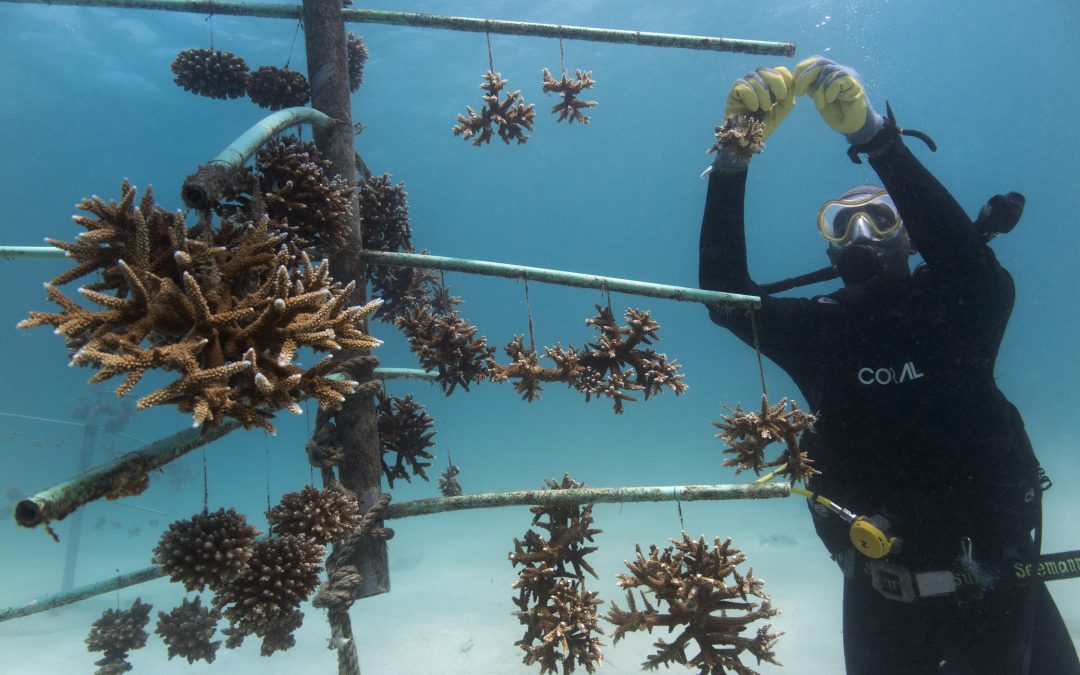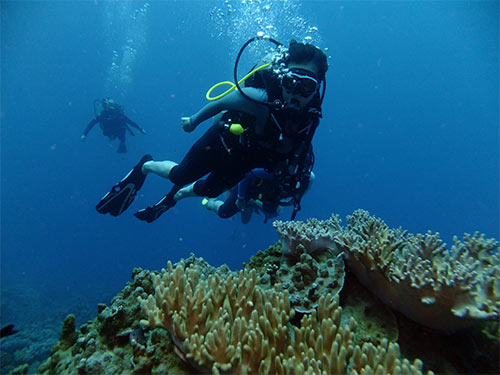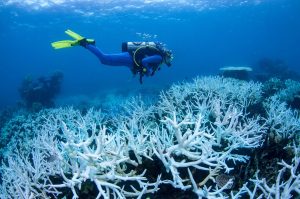The Future of Our Oceans: What We Can Do to Save Them
Climate change has been affecting the oceans for years. Coral bleaching is one of the most visible impacts of climate change on the ocean. Climate change has caused temperatures around coral reefs to rise by 0.6 degrees Celsius since 1880, causing them to bleach and die as a result. Another way you can help protect our oceans from climate change is by boycotting companies that don’t put their concerns about protecting these vital ecosystems at the forefront when making decisions about how they treat or pollute our planet’s water ways
Coral bleaching is one of the most visible impacts of climate change.
Coral bleaching is a natural phenomenon that occurs when stressed coral reefs are exposed to more sunlight. As the water temperature rises, corals expel their symbiotic algae and turn white in color. The condition can be very damaging to the health of coral reefs if it continues for any length of time.
The first step in preventing this from happening is knowing what causes it: rising ocean temperatures and ocean acidity (a result of carbon dioxide emissions) are both factors that contribute to coral bleaching.
Climate change has affected the ocean in many ways.
Climate change has affected the ocean in many ways. One of the main impacts of climate change on our oceans is coral bleaching, which refers to when corals lose their color and die as a result of exposure to high temperatures.
Corals are used as an indicator species for temperature changes; if they bleach, it means that other marine life will be affected as well. Since 1880, there has been an average 0.6 degree Celsius rise in temperature around coral reefs around the world—an increase that could mean trouble for divers who frequent these areas!
Coral bleaching is one of the main impacts of climate change on the ocean.
Coral bleaching is a process in which the coral expels its symbiotic algae. This expulsion can cause a loss of color, but it also results in severe damage to the coral. As temperatures rise, corals are losing the ability to photosynthesize and produce their own food. The effects of this on the rest of an ecosystem are wide-ranging: if there’s no more food for other creatures like fish or octopuses (which depend on corals), they’ll starve too!
The impacts of climate change have been observed throughout most regions of our planet with increased frequency over time—and they’re only going to get worse if we don’t take action now.  Scuba diving offers us many opportunities to help save some species currently at risk due to rising ocean temperatures, such as sharks and marine mammals like whales; however, there’s much more that can be done by divers both within and outside their careers if we want them survive long enough into tomorrow so future generations aren’t left behind due simply because we weren’t paying attention enough back then.”
Scuba diving offers us many opportunities to help save some species currently at risk due to rising ocean temperatures, such as sharks and marine mammals like whales; however, there’s much more that can be done by divers both within and outside their careers if we want them survive long enough into tomorrow so future generations aren’t left behind due simply because we weren’t paying attention enough back then.”
The temperature around coral reefs has risen by 0.6 degrees Celsius since 1880, causing them to bleach and die as a result.
Coral bleaching is one of the main impacts of climate change on the ocean. The temperature around coral reefs has risen by 0.6 degrees Celsius since 1880 and is continuing to rise, causing them to bleach and die as a result.
The world’s oceans are warming much faster than land-based surfaces or ice caps, leading to widespread coral bleaching events every few decades throughout much of our oceans. While this may sound like bad news for divers who want some cool underwater scenes in their Instagram feed, there are ways we can help protect these ecosystems from further damage caused by rising temperatures (and CO2).
There are ways you can help protect our oceans from climate change.
You can help protect our oceans from climate change by donating to conservation programs, marine science research and education, or even just giving your time.
The Conservation Fund: This non-profit organization helps fund projects that protect endangered wildlife in the United States and around the world. They’re especially focused on preserving habitat for sea turtles, whales, and other marine life that are threatened by warming seas.
Sea Turtle Conservancy: This organization works with governments worldwide to protect endangered sea turtles through education about their conservation efforts as well as research into how best to help them adapt when conditions change due to global warming trends.*
Ocean Conservancy: The Ocean Conservancy focuses on protecting coastal ecosystems worldwide through land conservation projects such as dams removal or restoration efforts on riverside forests.*
Conclusion
Climate change is a serious problem and we need to do all we can to help protect our oceans. Scuba diving is an important environmental activity that can be done in ways that don’t harm other animals or people, so it’s important that we take action now!









